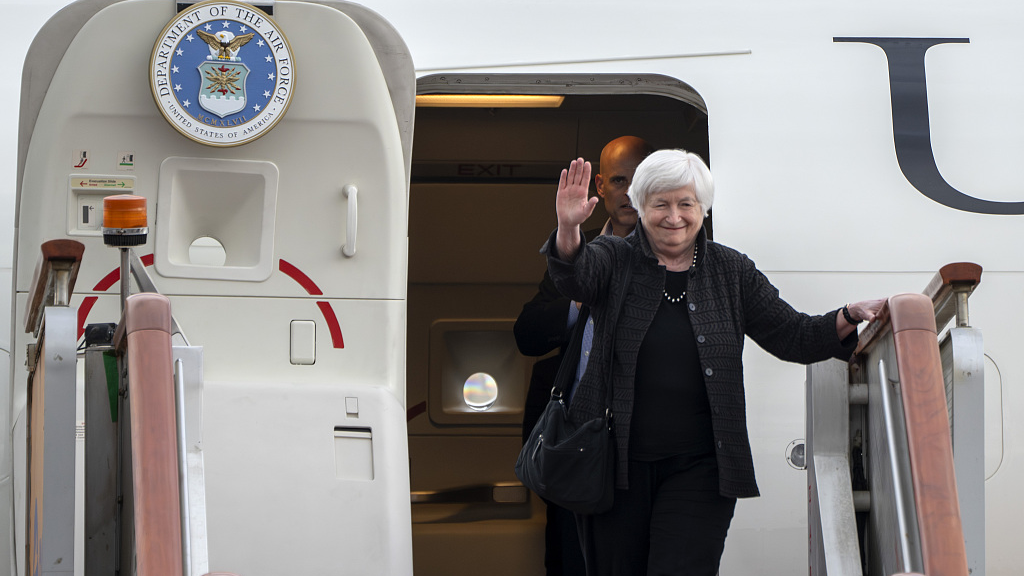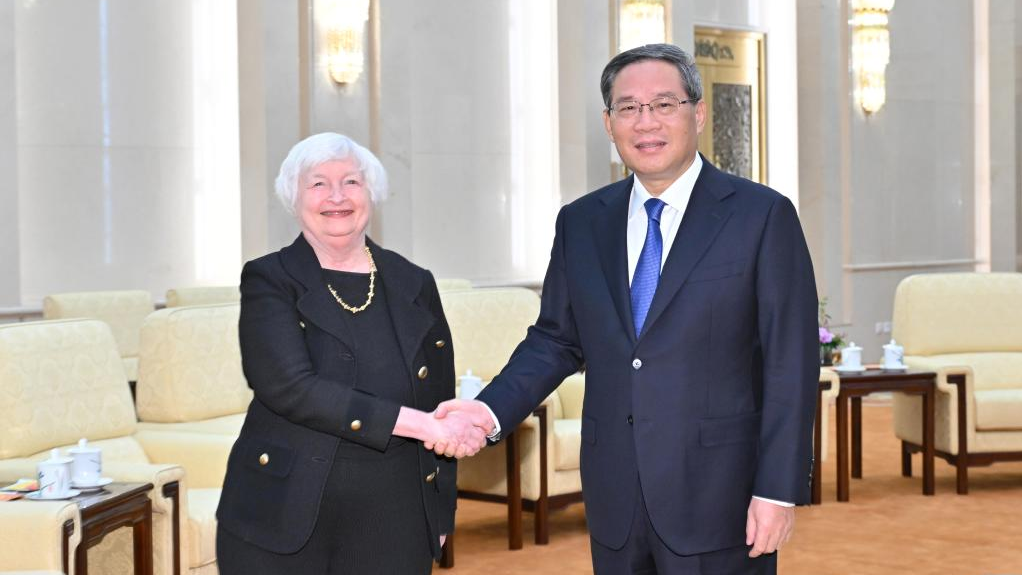
Editor's note: Imran Khalid, a special commentator on current affairs for CGTN, is a freelance columnist on international affairs. The article reflects the author's opinions and not necessarily the views of CGTN.
For obvious reasons, despite the lack of any tangible breakthroughs on the main contentious issues, U.S. Treasury Secretary Janet Yellen's four-day visit to China is still seen as a positive development in Sino-U.S. relations.
Even prior to her visit, both sides maintained a pragmatic stance and refrained from making any optimistic claims about its outcome. However, amidst tense Sino-U.S. relations, Yellen's visit, following the recent visit by U.S. Secretary of State Antony Blinken to China, has signaled a promising trajectory of renewed communication channels between the two countries. Throughout her visit, which involved a long string of meetings and negotiations with business leaders and top policy makers of China — including Chinese Premier Li Qiang, Chinese Vice Premier He Lifeng, and the governor of the People's Bank of China, Yi Gang — showed a relatively conciliatory tone in every interaction with the Chinese leadership.
"I am in Beijing to build on that direction … It is my hope that this visit can spur more regular channels of communication between our two countries … We seek healthy economic competition that is not winner-take-all but that, with a fair set of rules, can benefit both countries over time," remarked Yellen.
- She repeatedly talked about a "healthy economic competition" which is certainly encouraging, especially when contrasted with the frequently biased and bullying rhetoric directed at China from Capitol Hill.
- Unlike some of her hawkish peers in Washington, Yellen displayed a somewhat practical approach towards China.
- Her statements opposing "decoupling" from China and advocating for "necessary" and "constructive" economic relations reflect her differing approach.
China-U.S. relations have faced significant challenges in recent times, characterized by escalating tensions across various fronts, including trade, tariffs, and technological competition.
- Given the strained state of affairs, it is imperative for both of the countries to approach these issues cautiously, prioritizing the restoration of stability, enhancing productive dialogue, and identifying areas of mutual interest and global importance.
- One contentious issue is regarding the United States' additional tariffs on China, and the possibility of their cancellation.
- Additionally, the U.S.' possible withdrawal of the "Section 301 investigation" against China also warrants careful consideration.
- Equally important is the possible review of the phase-one economic and trade agreement, necessitating a comprehensive assessment of its implementation.

Strengthening cooperation is a realistic need and the right choice for China and the United States, Chinese Premier Li Qiang told U.S. Treasury Secretary Janet Yellen in Beijing on Friday.
Yellen is on a four-day visit to China starting from Thursday – her first trip to the country as U.S. treasury chief.
Whether China and the U.S. can handle their relationship well bears on the future of the world, said Li. He added that the two presidents reached important common understandings in Bali last year, chartering the course for China-U.S. relations.
Noting mutual respect, peaceful coexistence and win-win cooperation are the basic ways to conduct state-to-state relations, he said China hopes that the U.S. can meet China halfway and bring bilateral relations back on the right path guided by reason and pragmatism.
He noted that China and the U.S. should strengthen communication and seek consensus on important economic issues between the two countries, so as to inject stability and positive energy into bilateral economic relations.
Yellen said the U.S. does not seek "decoupling" and is willing to implement the consensus of the Bali meeting reached by the two heads of state with China to promote communication, avoid misunderstandings caused by differences, and enhance cooperation in macroeconomic stabilization and addressing global challenges, contributing to a mutually beneficial win-win situation for the U.S. and Chinese economies.

No comments:
Post a Comment